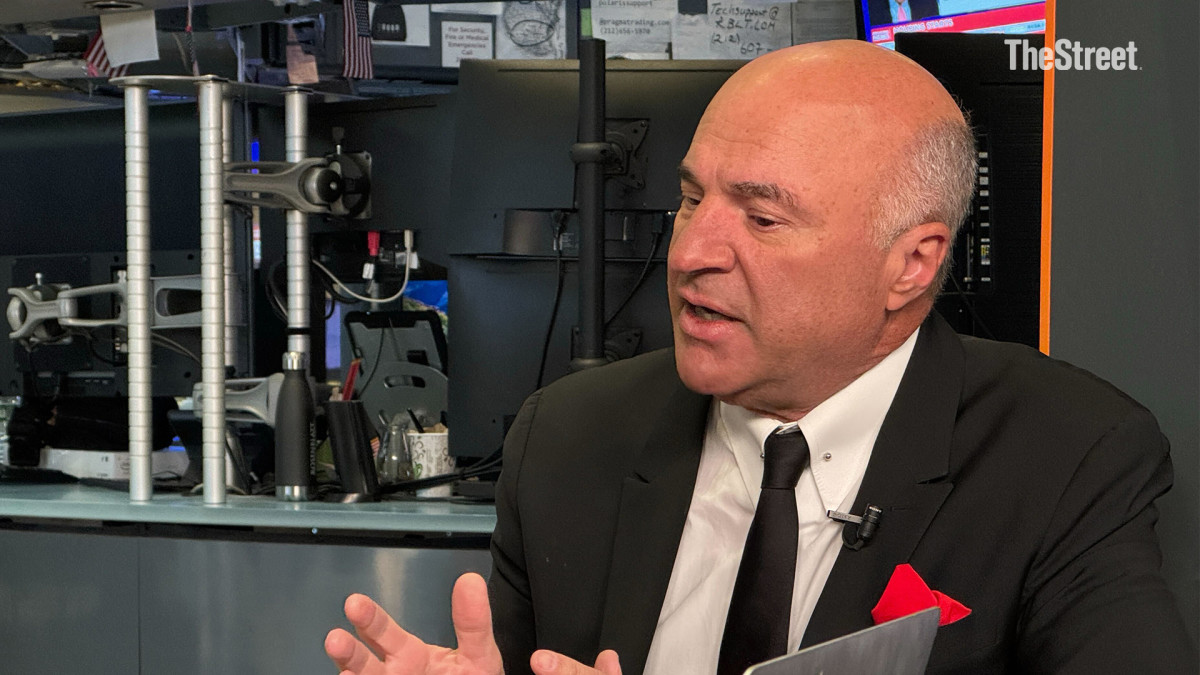Shark Tank's Kevin O'leary Reveals Blunt Words On Social Security

As workers across the U.S. prioritize near-term financial needs, many also grapple with the question of how much they should allocate toward retirement savings and investments.
Notable entrepreneur Kevin O'Leary, well-known for his role as a key investor on ABC's Shark Tank, offers a crucial perspective on Social Security and the financial resources individuals need in retirement, beyond the federal program's monthly benefits.
????????Don’t miss the move: SIGN UP for TheStreet’s FREE Daily newsletter????????
O'Leary emphasizes a key reality: Social Security was never intended to serve as retirees' only source of income.
With the average monthly benefit hovering around $1,900 — equating to roughly $23,000 per year — it falls short of providing the financial security many envision for their retirement years.
To build a stronger financial foundation, many employees take advantage of employer-sponsored 401(k) plans, which often include company matching contributions, making them an even more attractive savings option.
Related: Shark Tank's Kevin O'Leary sends strong message on 401(k)s
Traditional IRA contributions are made using pre-tax income, meaning retirees will owe taxes when they withdraw funds during retirement.
In contrast, Roth IRAs require individuals to pay taxes on contributions up front, allowing them to make tax-free withdrawals when they are retired.
Considering these financial realities, O'Leary offers further insights into Social Security benefits and other sources of income in retirement.
Kevin O'Leary of "Shark Tank" talks with TheStreet at the New York Stock Exchange. O'Leary explains ways Americans can become less dependent on Social Security monthly paychecks during their retirement years.Image source: TheStreet
Kevin O'Leary of 'Shark Tank' bluntly speaks on spending before collecting Social Security
To reduce reliance on Social Security payments in retirement, O'Leary outlines key financial strategies.
In his book, "Cold Hard Truth for Men, Women & Money," he stresses the importance of adjusting spending habits well before retiring, advising individuals to embrace frugality early.
Downsizing housing, living near essential services, and even sharing expenses with a roommate can help stabilize finances.
He also underscores the value of staying physically active — biking and walking enhance overall well-being, O'Leary suggests — and maintaining strong insurance coverage to prepare for unexpected health costs.
More on retirement:
- Dave Ramsey sends strong message to Americans on 401(k)s
- Shark Tank's Kevin O'Leary warns Americans on Social Security
- Scott Galloway sounds the alarm on Social Security, boomers
O'Leary urges those nearing retirement to evaluate expenses and, for those extremely behind on saving for retirement, to make tough financial choices critically.
"Radically cut down on all your expenses. Lose the car. Lose the cable. Maybe even lose the cat," O'Leary wrote bluntly. "You’re in an emergency situation."
He highlights that increasing annual income by just $5,000 could significantly improve quality of life over a 15-year retirement, amounting to $75,000 in total savings — achievable within five to seven years with disciplined budgeting.
O'Leary encourages Americans to prioritize personal financial security over providing for adult children.
By practicing a leaner lifestyle in their final working years, retirees can better transition into living comfortably within their new financial means.
Related: Shark Tank's Kevin O'Leary makes bold prediction on U.S. economy
Kevin O'Leary explains how much money to spend while collecting Social Security
O'Leary references financial experts who estimate that retirees should plan to replace about 65% of their pre-retirement gross income to sustain their lifestyle.
For a straightforward example, someone earning $100,000 per year would need approximately $65,000 in their first year of retirement to meet their financial needs.
This calculation includes Social Security benefits, which average around $23,000 annually. Based on this estimate, a person would need to generate an additional $42,000 each year from other retirement income sources.
This projection assumes retirees aim to maintain a lifestyle similar to what they had while working full-time.
Expenses such as frequent dining out, purchasing books for commutes, and seasonal wardrobe updates may no longer be necessary.
With no daily commuting, fewer restaurant meals, and reduced dry-cleaning costs, retirees may find their financial demands decrease, allowing them to adapt their spending habits accordingly.
"If you're healthy and happy, being old is cheap," O'Leary wrote. "Walking, working part-time, and living a life of purpose and meaning don’t require a lot of money, just planning and discipline."
Related: Veteran fund manager unveils eye-popping S&P 500 forecast
Popular Products
-
 Wireless Health Tracker Smart Ring - R11
Wireless Health Tracker Smart Ring - R11$94.99$65.78 -
 Electric Hair Straightener and Curlin...
Electric Hair Straightener and Curlin...$116.99$80.78 -
 Pet Oral Repair Toothpaste Gel
Pet Oral Repair Toothpaste Gel$43.99$29.78 -
 Opove M3 Pro 2 Electric Massage Gun
Opove M3 Pro 2 Electric Massage Gun$462.99$322.78 -
 Portable Electric Abdominal Massager ...
Portable Electric Abdominal Massager ...$47.99$32.78